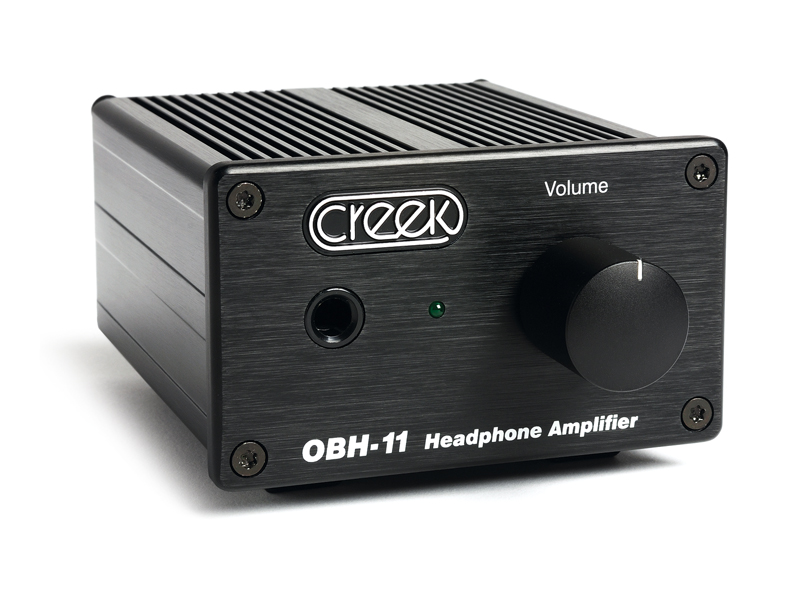TechRadar Verdict
A modest little unit that nevertheless achieves good results with a wide range of headphones. At its best with livelier musical styles.
Pros
- +
Good value
- +
Works well
Cons
- -
Sound can seem a bit dry against rivals
Why you can trust TechRadar
This is Creek's basic headphone amp.
It shares with the rest of the OBH range a neat design based on a length of aluminium extrusion, cut to length and faced at the front with a very smart aluminium panel.
Amp circuitry
Facilities are the usual – phono input with a phono output connected directly to it for daisychaining to the rest of the system, a volume control and single quarter-inch jack socket. The circuit is based on ICs and powered by a universal wall-wart supply.
It will deliver a fairly typical 5V into high-impedance headphones, but unusually features a high output impedance, around 200 ohms, which means its output into low-impedance cans is limited (though still capable of achieving plentiful SPLs).
In addition, the tonal balance may be subtly different from other headphone amps with some headphones.
Strong control
Be that as it may, this is a lively little performer. It did indeed have a very slightly leaner bass with the excellent Denon AH-D7000 – and no harm done there either, since the bass of that model is just a touch on the generous side.
Both with those and with higher-impedance Beyers, its sound is detailed and also remarkably energetic, positively relishing music that features rapid changes in texture and dynamics. There is a very good sense of control and, as a result, there's also a high degree of analysis.
Just occasionally one might feel, in comparison with some other (dearer!) headphone amps, that the sound is a touch dry, but it is by any reckoning a significant upgrade on a typical CD player headphone output.
